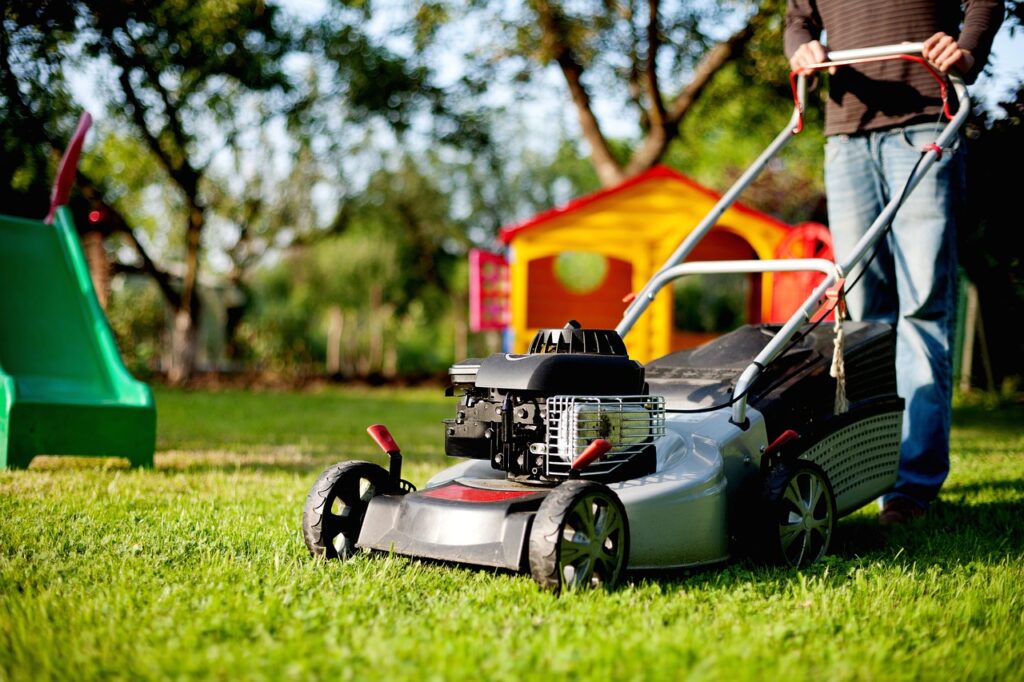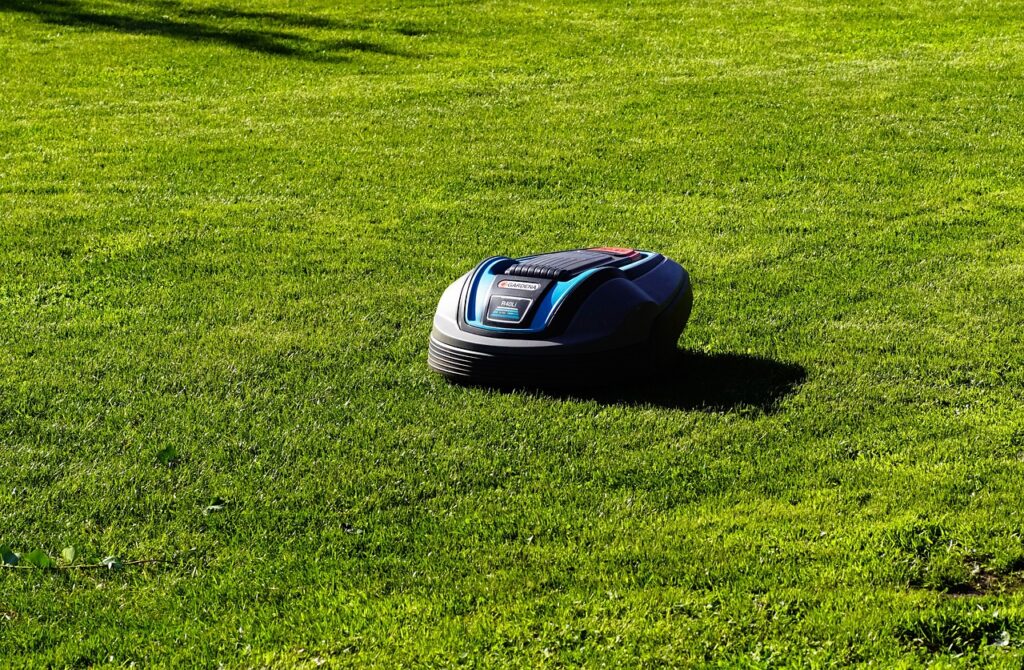Benefits of Robotic Mowers
Traditional mowers provide conventional benefits, but as labor shortages intensify and profit margins shrink, these benefits no longer meet the demands of today’s market. Robotic mowers, on the other hand, open up new opportunities for work and revenue. Here are some of the key advantages of incorporating robotic and autonomous mowers into your landscaping operation:
Reducing Labor Needs
The landscape industry is facing a severe labor shortage, and this issue shows no signs of improving. By integrating robotic and autonomous mowers, businesses can complete more work with fewer employees. Tasks that once required a six-person crew using string trimmers can now be handled by just one operator and a robotic mower. In fact, a typical mowing job can be completed with as little as one-third of the labor required for traditional methods.
Access to High-Value Niche Revenue
Remote-controlled robotic mowers, designed specifically for steep and rugged terrains, enable businesses to take on specialized projects and win profitable niche work. These advanced machines allow landscaping companies to tackle tasks that competitors may avoid, opening the door to new revenue streams.
Enhanced Safety
In challenging environments, such as steep slopes and difficult terrain, robotic mowers perform the work that is too dangerous for human operators. Using a traditional riding mower on a steep hill can lead to rollovers, but robotic mowers can safely navigate these conditions without putting workers at risk. In general, autonomous mowers reduce the need for people to endure long hours of monotonous, physically demanding work, lowering the risk of injury and human error.
Versatility and Flexibility
Robotic and autonomous mowers provide contractors with unmatched flexibility, allowing them to expand the range of services they offer and adapt their workforce deployment. Whether it’s tackling challenging terrain or streamlining routine mowing tasks, these machines provide the versatility to handle a variety of landscapes.
Improved Working Conditions
Robotic mowers improve both safety and employee comfort. They also offer employees opportunities to learn new skills, which increases their value to the company and enhances their career prospects. Working with advanced technology like robotic mowers can also lead to greater job satisfaction.
Greater Efficiency
Robotic mowers remove many unpredictable elements from your business. Unlike human workers, robots don’t call in sick, get distracted, or lose focus on the job. These machines can operate continuously at high efficiency, allowing your human workforce to focus on more complex tasks like detailed landscaping and customer service. As a result, your operation becomes more productive and profitable.
The MC700 Series Remote-Operated Robotic Mowers
Engineered for heavy-duty, labor-efficient work, the MC700 Series mowers are designed to tackle specialty landscaping tasks with ease. Key features include:
- Up to 50° slope capability without the need for a winch
- Ability to navigate dense brush and rough terrain
- Robust construction, including cast iron spindles and bearings
- Soft-start clutch system and reinforced bumper for durability
- Elevated ground clearance for better maneuverability
- Narrow width for easy transport on standard trailers
Autonomous Mowing Robots
These autonomous machines are designed to address labor shortages and offer a clean, precise cut, freeing up staff to focus on more intricate landscape tasks. Key features include:
- Safety features such as anti-collision systems, safety interlocks, E-Stop, and LiDAR detection
- Security and environmental light features for added safety
- Remote start and up to 500 feet operating range
Where Can You Use a Robotic Mower?
The MC700 Series mowers are versatile and ideal for a wide range of specialized applications that many landscape contractors or municipal workers may avoid due to the complexity or risk involved. These mowers allow businesses to access profitable, hard-to-reach areas without compromising safety or efficiency. Some common applications include:
- Canals
- Retention ponds
- Bridge embankments
- Water treatment facilities
- Stormwater canals
- Levees and dams
- Reservoirs
- Roadsides
- Landfills
- Catch basins
- Ditches
- Containment berms
- Fire fuels reduction
- Fire abatement
The MC700 Series mowers excel on slopes of up to 50°, capable of cutting vegetation up to 1.5 inches in diameter, making them perfect for the toughest jobs.
Increase Efficiency and Expand Your Business with Robotic Mowers
Traditional mowers can limit your ability to scale due to the ongoing challenges of finding and retaining labor. Autonomous mowers, however, allow you to grow your business by completing routine mowing jobs with fewer employees, while also turning labor-intensive tasks into more profitable opportunities.
When it comes to difficult terrains, traditional methods simply aren’t safe or efficient. Our remote-operated robotic mowers solve these problems, offering access to hard-to-reach areas, reducing labor costs, and enhancing worker safety—all while generating additional revenue.
We are committed to helping you integrate autonomous technology into your business. Contact us today to schedule a demo and see how our robotic mowers can improve your operations.
Related Post: How Frequently Should a Robotic Lawn Mower Operate?


